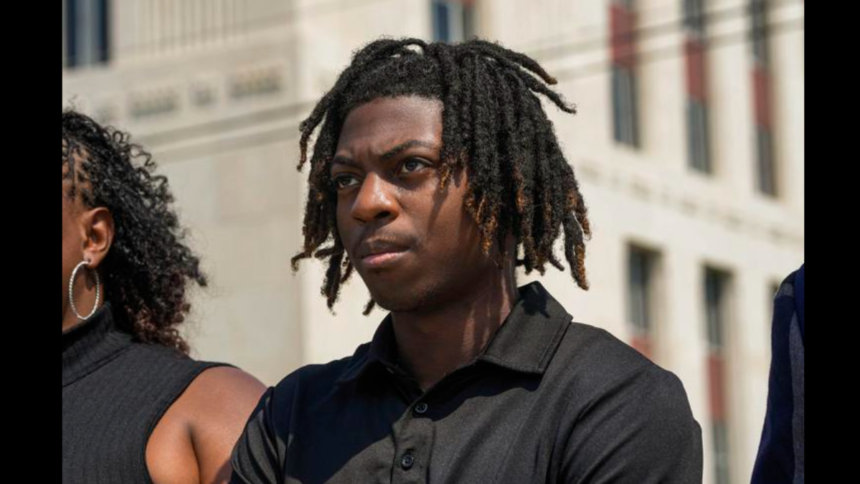Darryl George, 18, took legal action for civil rights after the Barbers Hill School punished him for not changing his hairstyle.
A Black high school student filed a lawsuit alleging that he was punished for failing to change his hairdo by the school authorities based on both gender and race. On Tuesday, a federal judge dismissed most of the claims in the lawsuit.
The Barbers Hills school district, located near Houston, claims that its policy limiting male students’ hair length fosters discipleship while teaching grooming and respect for authority. The verdict in the case of Darryl George was another victory in this regard.
However, US District Judge Jeffrey Brown questioned where the school district caused more harm than good in his ruling.
Brown wrote, “Not everything that is undesirable, annoying, or even harmful amounts to a violation of the law, much less a constitutional problem.”
For most of the 2023-2024 school year, George, 18, was not allowed to attend his regular high school classes because the school district claimed his length violated its dress code. George was placed in an off-site disciplinary program or served an in-school suspension at Barbers Hill High School in Mont Belvieu.
The district claims that George’s long hair, which he wears tied and coiled in locs on top of his head, is against school regulation because, if it were allowed to fall, it would cover his eyebrows, earlobes, and shirt collar. According to the district, other students with locs comply with the length policy.
In addition to Texas Governor Greg Abbot and Attorney General Ken Paxton, George and his mother, Darresha George, filed a federal civil rights case against the school district, the district superintendent, his principal, and his assistant principal last year.
George’s punishment is also said to violate the Crown Act, a recently passed state law that forbids discrimination based on race in hairstyles. The Crown Act, which was under discussion prior to the controversy surrounding George’s hair and went into force in September, forbids employers and schools from discriminating against individuals’ hairstyle or texture, including Afros, braids, locs, twists, or Bantu knots.
The lawsuit claimed that Black students were the primary targets of the school district’s policies. However, according to Brown, George had not demonstrated “a persistent, widespread practice of disparate, race-based enforcement of the policy.”
According to the suit, George’s First Amendment right to free speech was being violated. However, according to Brown, George’s lawyer was unable to provide any case law demonstrating that hair length “is protected as expressive conduct under the First Amendment.”
Brown dismissed several arguments that George’s 14th Amendment rights to due process were being infringed. He also dismissed Abbott, Paxton, the district superintendent, and other school employees.
The only thing he allowed to stand was an accusation of sexism stemming from the school district’s alleged lack of explicit guidelines regarding why boys were not permitted to have long hair, but girls were.
Brown stated, “Because the district does not provide any reason for the sex-based distinctions in its dress code, the claim survives this initial stage.”
Brown’s order follows a February ruling by a state judge in a district lawsuit holding that the school district’s punishment does not violate the Crown Act.
At the end of Brown’s ruling, the judge cited a 1970 case in which the district in El Paso, Texas, had attempted to prevent a male student from enrolling because of his hair length, a decision that an appeals court later overturned.
The judge in the El Paso case stated that “the presence and enforcement of the hair-cut rule cause far more disruption of the classroom instructional process than the hair it seeks to prohibit.”
About George’s case, Brown said, “Regrettably, so too here.”
In addition to George’s case, two other students challenged Barbers Hill’s hair policy in a May 2020 federal lawsuit. One of them left and returned after a federal judge granted a temporary, citing “a substantial likelihood” that his rights to free speech and to be from racial discrimination would be violated if he was barred. The lawsuit is still pending.















